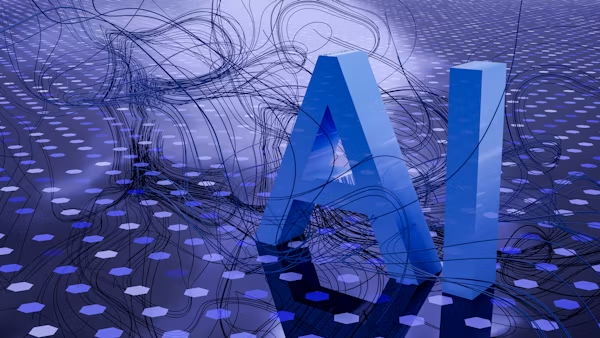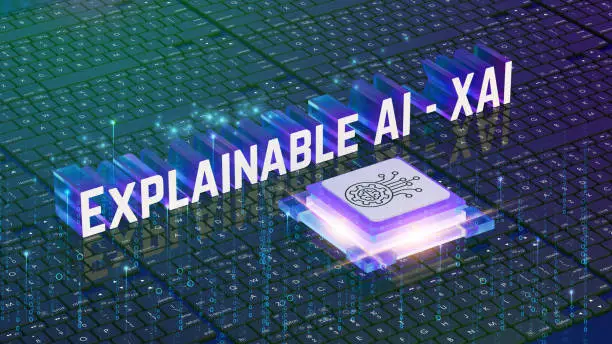Why AI Coding Assistants Matter
Imagine working on a big coding project with a tight deadline, and you keep running into bugs that you cannot even figure out. Everything will become very tiring as plenty of errors must have been generated based on the fact that you are writing long lines of code. Are you going to search the errors on Google or will you run to Stack Overflow, which can complicate your problem even more with human answers? I remember back in the days when we used to write codes in Wakap.mobi and most of the time, you would find yourself in a long syntax error, which could take days to resolve.
Now think about working on a complex project with a timeline attached to it. This discussion will discuss why developers need AI coding assistants for efficient software development
The truth is that you might probably fail your client as thousands of codes are error-prone. This is why AI coding assistance has become a saviour to coding life.
Take GitHub Copilot, for example. It has helped developers speed up their coding process by up to 55% according to GitHub’s official report. AI-powered assistants like Tabnine, CodeWhisperer, andQodo AI are not just automating tasks, they are making coding easier and faster for beginners and seasoned coder.
These AI tools are more than just autocomplete; they help in:
- Reducing errors
- Improving coding efficiency
- Boosting security
- Suggesting coding best practices.
With software development becoming complex, AI is no longer a waste of money, it has become a necessity. The question is not whether AI can help developers in their job. It is how much better developers can get with AI being part of the process.
Criteria for Choosing the Best AI Coding Assistant
AI coding Assistance has become of great help to developers providing live support, suggestion and improving efficiency since software and web development has keep taking a twist. But with so many AI coding assistants options available online, your ability to identify which is the best for you at a specific need matters.
Below are the key criteria to consider when selecting an AI coding assistant that suits your development process:
1. Code Completion and Suggestions
When you are coding, having an assistant that can predict what you are trying to do next and suggest the right code can make a huge difference. Tools like GitHub Copilot and Tabnine are good at this. They help you complete your code faster by offering best suggestions as you go, which can save you time and reduce mistakes. Instead of having to type everything out or search for solutions, these tools help you write cleaner and more efficient codes. Especially helpful when you are on tight deadlines or working on complex projects.
2. Error Detection and Debugging
One of the biggest advantages of an AI coding assistant is its ability to catch errors and help you debug as you go. Tools like DeepCode AI and Snyk are great at this. They automatically spot problems in your code and provide solutions right away. Instead of wasting hours debugging, these assistants can save you time and ensure your code is solid before the error grows into a massive one. It is solid for improving code quality and streamlining the development process.
3. Security and Best Practices
Security is a top concern in today’s software development. Having an AI assistant that focuses on keeping your code secure and following best practices can be a big improvement if not the best. Tools like Codiga and Snyk are known for flagging vulnerabilities and suggesting improvements to make your code safer. With their help, you can ensure your project is not only working well but also secure and up to industry standards governance.
4. Multi-Language Support
With the variety of programming languages available, having an AI coding assistant that supports multiple languages is really helpful. Tools like CodeGeeX and OpenAI Codex cover everything from popular languages like Python, JavaScript, and Java to more specialized ones. This flexibility lets you work on different projects without needing to switch between assistants.
5. Integration with IDEs
For a smooth experience, an AI coding assistant should easily integrate with your Integrated Development Environment (IDE). IntelliCode for VS Code is a perfect example, offering handy hints directly within your IDE to help you write code more quickly and accurately. This easy integration means you do not have to switch between tools, making your workflow much more efficient.
Top 14 AI Coding Assistants: Features, Benefits and Pricing
1. GitHub Copilot
Overview: Powered by OpenAI, GitHub Copilot provides intelligent code suggestions and completes entire lines or blocks of code based on the context.

Key Features:
- Autocompletes entire lines of code.
- Works with multiple languages.
- Integrates seamlessly with VS Code.
Best For: Developers of all levels who want faster coding.
Pricing: Paid, with a free trial available.
2. Tabnine
Overview: Tabnine is an AI code completion tool that works locally or in the cloud. It provides intelligent code suggestions based on your previous code.

Key Features:
- Supports numerous languages and IDEs.
- Customizable for team-specific coding patterns.
Best For: Professional developers working in teams.
Pricing: Free for individuals, paid for teams.
3. DeepCode AI
Overview: DeepCode AI focuses on analysing code for security flaws and bugs. It provides real-time suggestions to improve code quality.

Key Features:
- Detects vulnerabilities and bugs.
- Gives actionable suggestions for security.
Best For: Security-focused developers and teams.
Pricing: Free for open-source, paid for private repositories.
4. Codiga
Overview: Codiga helps developers maintain high code quality by offering real-time feedback on best practices and code readability.

Key Features:
- Code quality checks.
- Enforces coding standards.
Best For: Developers focused on writing clean, maintainable code.
Pricing: Free for individuals, with paid plans for teams.
5. IntelliCode for VS Code
Overview: IntelliCode is an AI-powered feature integrated within VS Code, offering smarter code completions based on your code’s context.

Key Features:
- Contextual code completions.
- Personalized suggestions based on your coding style.
Best For: Developers using VS Code for various languages.
Pricing: Free for individual use.
6. Snyk
Overview: Snyk focuses on security, identifying vulnerabilities in dependencies and code and offering instant fixes.

Key Features:
- Finds security vulnerabilities in dependencies.
- Provides actionable fixes for identified issues.
Best For: Developers working on security-sensitive applications.
Pricing: Free for individuals, with paid plans for teams and enterprise users.
7. Replit
Overview: Replit is a cloud-based IDE that integrates AI to help developers write code faster, debug, and collaborate with others in real-time.

Key Features:
- Cloud-based with AI-powered coding suggestions.
- Supports real-time collaboration.
Best For: Beginners and intermediate developers.
Pricing: Free with premium plans for extra features.
8. Amazon CodeWhisperer
Overview: Amazon CodeWhisperer assists developers in building cloud-based applications by providing code recommendations tailored for AWS services.

Key Features:
- Tailored suggestions for AWS-based applications.
- Works well with cloud and DevOps workflows.
Best For: Developers focused on AWS or cloud-based projects.
Pricing: Free for individual use, with premium options for AWS subscribers.
9. SonarQube
Overview: SonarQube is an AI-driven code quality and security analysis tool that detects bugs, vulnerabilities, and code smells in your codebase.

Key Features:
- Detects issues related to code quality, security, and maintainability.
- Provides actionable insights for improving code.
Best For: Teams focusing on maintaining high-quality, secure code.
Pricing: Free for small teams, with paid enterprise options.
10. Jupyter Notebook AI Integration
Overview: Jupyter Notebook’s AI integration helps data scientists and machine learning engineers by providing code suggestions, error detection, and documentation.

Key Features:
- Real-time code suggestions and debugging.
- Integration with machine learning models for data analysis.
Best For: Data scientists and ML developers.
Pricing: Free, with premium enterprise features available.
11. CircleCI
Overview: CircleCI is a continuous integration and continuous delivery (CI/CD) platform that automates the software development process, enabling developers to build, test, and deploy code efficiently.

Key Features:
- Automated Workflows: CircleCI automates the process of building, testing, and deploying code, ensuring consistent and reliable software delivery.
- Integration with VCS: It integrates seamlessly with version control systems like GitHub and Bitbucket, facilitating smooth code integration and deployment.
- Scalability: CircleCI offers scalable solutions to handle projects of varying sizes, from small applications to large enterprise systems.
- Customization: Developers can customize their CI/CD pipelines to suit specific project requirements, enhancing flexibility and control over the development process.
Best For: Development teams seeking to automate their CI/CD pipelines for faster and more reliable software delivery. Projects requiring seamless integration with version control systems and scalable build environments.
Pricing:
CircleCI offers a free tier suitable for individual developers and small teams, with paid plans available for larger teams and enterprise solutions, providing additional features and resources.
12. Codex by OpenAI
Overview: Codex is OpenAI’s language model for coding, capable of generating code from plain English instructions and supporting a variety of languages.

Key Features:
- Generates code from natural language descriptions.
- Can handle both backend and frontend tasks.
Best For: Developers looking for AI to generate code from natural language prompts.
Pricing: Usage-based pricing.
13. ChatGPT for Code
Overview: ChatGPT can be used as an intelligent coding assistant, helping developers with code generation, debugging, and documentation.

Key Features:
- Generates code from plain English.
- Offers debugging and refactoring help.
Best For: Developers needing flexible assistance with code.
Pricing: Free, with premium access for more usage.
14. LiveCode AI
Overview: LiveCode AI offers real-time code suggestions and debugging support, making it useful for live coding sessions.

Key Features:
- Real-time code suggestions and completions.
- Debugging assistance.
Best For: Developers who frequently engage in live coding sessions or pair programming.
Pricing: Free with premium options for advanced features.
Pros and Cons of Using AI Coding Assistants
AI coding assistants are becoming increasingly popular in the development community. They promise to make coding faster, more efficient, and less error-prone, but like all technology, they come with their own set of advantages and disadvantages. Let’s break down the pros and cons of using AI coding assistants.
Pros of Using AI Coding Assistants
- Faster Development: One of the biggest advantages of AI coding assistants is their ability to speed up development. These tools can auto-complete code, suggest functions, and even write entire blocks of code for you. This can significantly reduce the time spent on repetitive tasks and help developers focus on higher-level logic. It is like having a personal assistant that helps you type faster and more efficiently.
- Fewer Bugs: Many AI coding assistants come with built-in syntax checking, error detection, and suggestions for best practices. This can help reduce bugs and errors in the code, especially for common or simple mistakes. Since the AI is trained on a vast amount of code from different sources, it can often catch issues that a developer might miss. This leads to cleaner, more reliable code.
- Improved Learning: AI coding assistants can be a valuable tool for new developers or those learning a new programming language. The suggestions they offer can serve as learning opportunities, helping users understand different ways of solving a problem, explore functions or libraries they may not have considered, and reinforce good coding practices. It is like having a mentor that is available at all times to guide you.
Cons of Using AI Coding Assistants
- Dependency on AI: While AI can be a great tool, over-reliance on it can lead to a lack of understanding of the underlying principles of coding. Developers might become overly dependent on the assistant, especially when starting out, without truly understanding the code they are writing. This dependency could limit their ability to solve problems independently or understand why a particular approach is suggested.
- Privacy Concerns: AI coding assistants often learn from vast datasets, which might include publicly available code from repositories or other sources. This raises concerns about code privacy and the potential for sensitive information to be unintentionally shared or exposed. For developers working on proprietary or sensitive projects, using AI coding assistants could introduce risks related to data security or code confidentiality.
- Occasional Incorrect Suggestions: Although AI assistants are powerful, they are not perfect. They can sometimes provide incorrect or inefficient code suggestions, which might lead to poor practices or performance issues if accepted without review. Additionally, AI tools may not always be up to date with the latest frameworks, languages, or best practices, which can result in outdated or suboptimal suggestions.
The Future of AI in Software Development
AI has made significant strides in the world of software development, transforming how developers approach coding and problem-solving. With AI coding assistants like GitHub Copilot, Tabnine, and other similar tools becoming integral parts of the development process, there is growing curiosity about where this technology is headed. Will AI eventually replace human developers, or will it simply enhance their abilities? Let us explore the future of AI in software development.
AI Coding Assistants: The Road Ahead
- Increased Integration into Development Environments: As AI continues to evolve, we can expect it to become even more seamlessly integrated into Integrated Development Environments (IDEs) and cloud-based platforms. The next generation of AI assistants will likely provide smarter code completions, deeper context awareness, and even suggestions based on the entire project, not just isolated pieces of code. The goal will be to create a more intuitive development experience where the AI helps developers write high-quality code with minimal effort.
- Enhanced Problem Solving and Code Generation: AI coding assistants are expected to improve at understanding complex problems and suggesting innovative solutions. Rather than just offering basic code snippets, future AI tools might be able to propose whole architectures, design patterns, or entire modules, potentially reducing the amount of time spent on planning and design. This will make AI a valuable tool for advanced coding tasks, such as refactoring legacy code, optimizing performance, and solving niche or complex problems.
- AI as a Collaborative Tool, Not a Replacement: One of the most important trends in AI’s future in software development is the shift toward collaboration. AI coding assistants will likely evolve to become collaborators rather than replacements. By working alongside developers, AI can automate tedious and repetitive tasks, like writing boilerplate code, running tests, and checking for common errors. This would free up human coders to focus on higher-level tasks that require creativity, strategic thinking, and problem-solving.
Mathew Otu, a tech blogger with over 15 years of experience, has been sharing insights on emerging technologies, mobile apps, and digital solutions since 2008. He has also contributed to Android app development projects focused on monitoring worker and driver stress levels. Known for his positive perspective, He lives in Nottingham, England, exploring the ever-evolving tech world.




